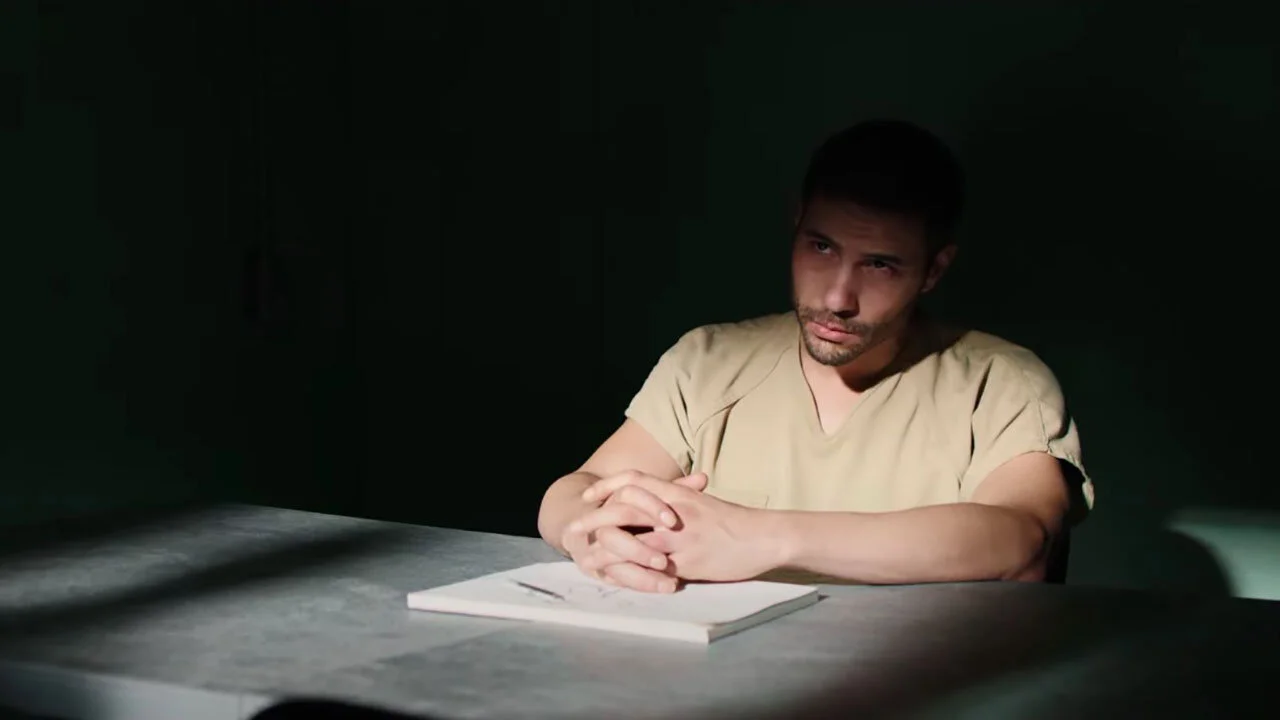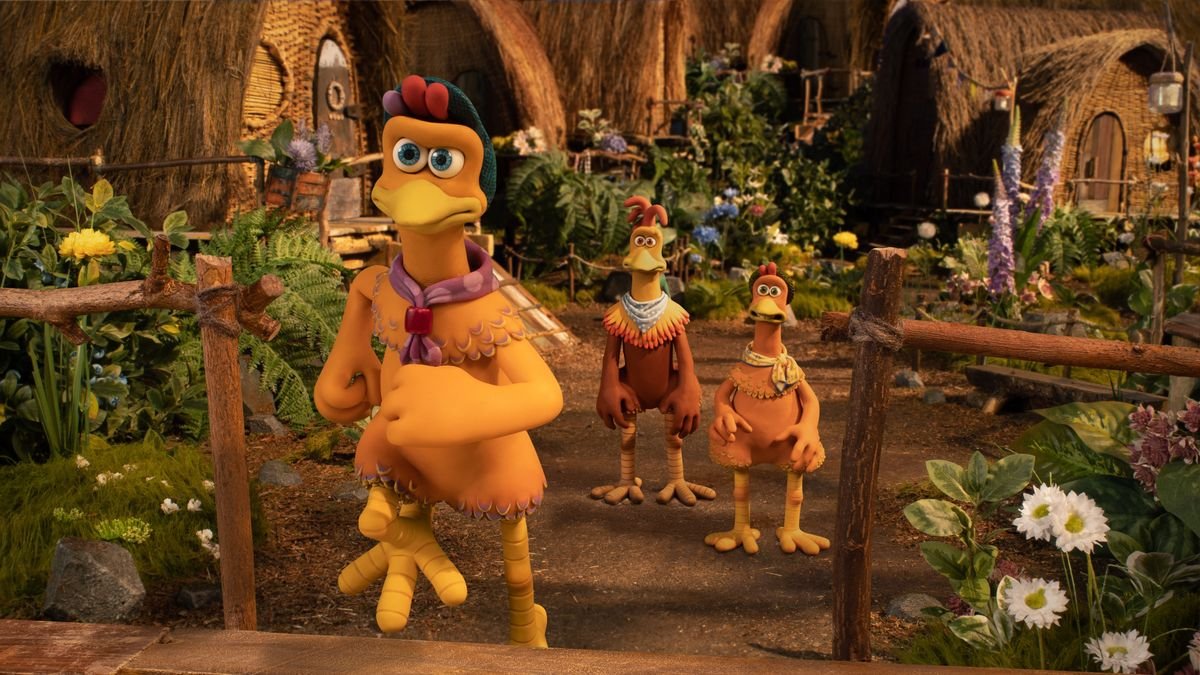Review: The Mauritanian (2021)
The story of Mohamedou Ould Salahi (Tahar Rahim) is dramatically compelling. Even a description of the most basic elements of his story is intensely affecting and potentially politically galvanizing, in demonstrating the horrific abuses committed during the War on Terror. In The Mauritanian, adapted from Salahi’s 2015 memoir Guantánamo Diary, director Kevin McDonald attempts to place Salahi’s story into the larger context of the prosecution of terror suspects in the wake of 9/11. The film highlights the legal abuses of the system through the moral awakening of Salahi’s lawyer, Nancy Hollander (Jodie Foster) and the misgivings of his military prosecutor, Lt. Colonel Stuart Couch (Benedict Cumberbatch). But for all the power of Salahi’s story, McDonald’s film does little to enhance the viewer’s understanding of what exactly was at stake in Salahi’s trial. The Kafkaesque nightmare of extraordinary rendition and so-called “enhanced interrogation” makes Salahi’s case morally convincing, and Tahar Rahim gives a powerful and memorable performance as Salahi. However, the film’s attempt to frame Salahi’s experience through the moral journey of his legal defenders and prosecutors is ultimately uncompelling. In short, the seriousness of this material deserves more than what The Mauritanian can offer, and yet the film offers just enough to potentially spur reflection and further investigation.
Nearly 20 years after 9/11, it might be difficult for many of us to remember exactly how intense and emotionally raw the response to the New York attacks was. Any questioning of America’s justification in hunting down and punishing those responsible was framed as anti-patriotic, or even cruel and demeaning towards the families of the victims. This meant that the methods used in the response were not scrutinized. Even before popular opinion turned against the invasion of Iraq in 2003-2004, a massive, unrestrained legal and extra-legal apparatus was already erected to support the detainment, prosecution, and punishment of suspects, often apprehended outside of traditional “combat zones.” In particular, the US constructed a network of various “black sites” around the world to facilitate this torture, in addition to the public and notorious “overseas detention center” in Guantánamo Bay, Cuba, also known as JTF-Gitmo.
The film starts with the arrest and detention of Mohamedou Ould Salahi, a Mauritanian citizen with suspected ties to Al Qaeda and Osama Bin Laden, who is then whisked away from his home in the North African country and placed among the detainees at Gitmo in Camp Delta. In all his time in detention, Salahi is never formally charged with a crime, with his support for the Mujahideen in Afghanistan in the early-90s (when they were allies of American forces fighting communists) and vague-fleeting encounters with other terror suspects forming the basis of the case against him; certainly not enough to label him the “recruiter of 9/11.” A civil liberties lawyer, Nancy Hollander, finds herself drawn into the case, and with her assistant, Teri (Shailene Woodley), they visit Salahi in Guantánamo Bay, defending his right to habeas corpus, which is the right to legal representation to determine if a detention is lawful.
McDonald frames Gitmo as an enclosed and claustrophobic space, a series of gates and barbed wire fences decorated with American flags. In these early stage-setting sequences, the film is at its most ethnographic and descriptive. Oversaturated colours emphasize the heat of the base. The heat and the presence of local iguanas emphasize the inhuman and off-putting nature of the facility (a sign on a fence outside Salahi’s solitary prison yard ironically reads: “Do not harm the iguanas: $10,000 fine”). In some ways, despite the Cuban setting, McDonald cribs from the standard visual language used to represent the Middle East in the films of the last two decades, with washed-out filters and barren and austere framing.
The soldiers prep Nancy and Teri for a meeting with a person presumed to be a dangerous criminal, but the man they meet doesn’t match their expectation. Salahi as portrayed by Rahim is a warm presence, radiating intelligence and good humour. He jokes with the lawyers and explains that he learned to speak English from his guards and from watching television. He gives them a phone number to call his mother in Mauritania, who he hasn’t seen in three years.
As Salahi recounts his early experiences with interrogation, first by the FBI and then by military operators who deploy the infamous “enhanced interrogation,” the film’s standard 16x9 framing expands to the taller 4:3 ratio. In these sequences, McDonald employs more extremes of stylistic filmmaking in order to emphasize to the audience the sense of horror that Salahi experiences. These include isolation, freezing temperatures, forced standing positions for long periods of time, sexual assault, extremely loud metal music, and finally even a mock execution as well as threats that his mother will be arrested and raped. It’s extreme material, and the film attempts to give it a subjective first-person perspective, with overlapping audio tracks and washed out and dream-like visuals.
Frankly, while I understand the intention, it shows the limits of imagination that we would even need to have the obvious torture emphasized for moral dramatization, and as characters in the film and in real-life admit, it is torture no matter what anyone in the Defense Department said at the time. The horror of Salahi’s situation is already readily apparent to anyone with eyes to see. I’m unconvinced that the filmmaking is necessary to hammer home the outrageousness of Gitmo and the excess of the War on Terror.
That said, Rahim’s performance as Salahi is great enough that every time the film cuts from his story to those not directly involving him, particularly the story of Nancy Hollander and Salahi’s military prosecutor, Couch, my interest waned. One of the fim’s greatest strengths is in foregrounding the experiences of a Muslim terror suspect and aligning our sympathy with him. Therefore, by putting so much emphasis on the moral journeys of the various American legal teams, the film ironically forwards an account wherein the legal offense of denying the prisoners their habeus rights and representation was the primary abuse. This is a common refrain in so much Western outrage at the stories coming out of the War on Terror. For instance, characters refer to the processing of prisoners as “clearing the backlog,” and the political and psychological climate that created the situation goes largely left assumed. It is dehumanizing in the very language used.
Benedict Cumberbatch, who portrays the military prosecutor appointed by the state to bring the charges against Salahi for helping to plan 9/11, is ultimately a more complicated character than he might have been assumed to be. Lt. Colonel Couch, who lost a friend on the plane that hit the south tower, ultimately finds that he cannot prosecute a man whose confessions were solicited under torture. It is, as he says, against his principles as a man of law and a Christian. The story of a man working in a system that goes against his principles and making a stand is an inspiring one. But the film never really investigates the way that the abuses of Gimto are rooted in American political systems or culturally justified. It simply sidesteps the tension between Couch and the system. Likewise, Nancy Hollander brackets her belief in the right of prisoners to legal representation from her belief that Salahi committed the crime. Foster is a stalwart actor, and this is one of her most high profile roles in the last decade since she decided to focus more on directing, but I never really bought her shift from dispassionate defender of principle to genuine care for Mohamedou Salahi.
But this is mostly a fault of a script that fails to recognize its greatest strength, and aims to tackle too much in complicating its American characters. The film’s subject matter suggests that there is much more to be said if we’re going to cover all of these facets. What drives Hollander beyond her belief in legal principles? Is it simply the moral force of regarding torture as evil? If so, how can the filmmakers, and by extension we the audience, continue to shrug off the continued existence and detainment of hundreds of prisoners without charge at Gitmo, a facility that none of the subsequent American administrations have dealt with despite lip-service? I needed more than a few end title cards acknowledging that fact. In fact, I suspect that the complex nature of the story and multiple characters might have benefited from a limited series treatment, much like The Looming Tower, the 2018 Hulu series on the lead up to 9/11 (also starring Tahar Rahim).
Ultimately, Salahi’s confessions are deemed inadmissible due to their being procured through torture. However, as the film notes in the end titles, the Obama administration appealed the ruling and Salahi remained in prison until 2016, when he was finally freed and went home to Mauritania, where he lives today after spending the better part of two decades in prison without ever being formally charged with a crime. That would seem to undercut the triumph of his earlier court victory. The end credits feature the real-life Salahi singing along to Bob Dylan’s “The Man in Me” while looking at the copies of his book in many languages. He seems as genial and sharp in real-life as his portrayal in the film. Apparently he has written another book, about how he managed to retain his sense of hope and his spirit of forgiveness while being detained, but the US military has not released it to him yet. Frankly, that book sounds like a must read, as how he managed not to go completely insane or become incredibly bitter is perhaps the most shocking thing about the film.
The Mauritanian wants to be a film that is ultimately about doing the right thing, and about freedom and forgiveness—Salahi notes in his defense that Arabic uses the same word to refer to both concepts. It’s a monumental story, but the film can’t quite grant it the gravity it should have despite attempting to emphasize some of its most horrific aspects. Ultimately, filmmaking gimmicks reveal a lack of faith in the story’s power. The faith the film puts in the legal system to right these wrongs feels misplaced, as it doesn’t do service to the injustices on display. Nor does it delve deeply enough into the very human stories at the heart of it, wherein the seemingly limitless human capacity for depravity and redemption operate. The Mauritanian is worth a watch, simply for Tahar Rahim’s performance, and the story of the man he portrays, Mohamedou Ould Salahi. It’s by no means a bad film, but I couldn’t help but feel that my reaction to the story deserved something more from the filmmakers.
5 out of 10
The Mauritanian (2021, UK/USA)
Directed by Kevin McDonald; screenplay by M.B. Traven and Rory Haines & Sohrab Noshirvani; screen story by M.B. Traven, based on the book Guantánamo Diary by Mohamedou Ould Salahi; starring Tahar Rahim, Jodie Foster, Benedict Cumberbatch, Shailene Woodley, Zachary Levi, Cory Johnson.



The best part of the Road House remake is Jake Gyllenhaal, who makes his bouncer-warrior another one of his dark loner characters.